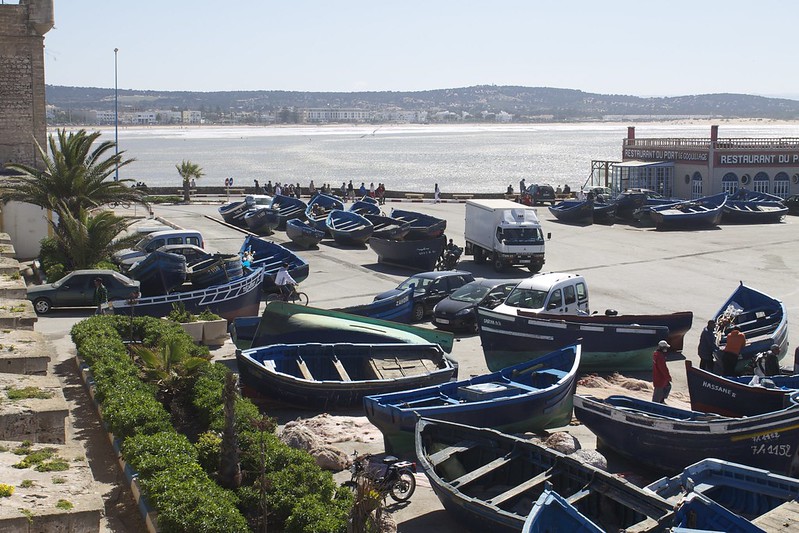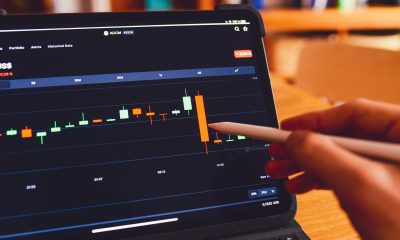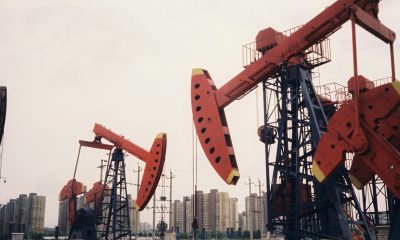Africa
IRES’ Recommendations to Ensure the Economic Recovery of Morocco
In its latest strategic report, IRES believes it is important to rethink the future of Morocco’s new trades, which have been heavily impacted by the health crisis, in order to make the necessary changes for the coming years as soon as possible. The IRES assures, in its report, that the food industry represents an industry that has been able to withstand the shock induced by the health crisis.

The year 2020 has been marked by a general slowdown in the share of exports of Morocco’s global Trades in exports, with the exception of the food industry, says the Royal Institute for Strategic Studies (IRES) in a zoom on Global Trades, published in its strategic report 2021, entitled “Towards a new world post-Covid 19? Given this finding, the institute believes that “it may be time to question the future of these global trades of Morocco in the coming decades, in order to take the necessary turns as soon as possible …”. First, the IRES recalls that, as part of a broad program of action to improve its competitiveness to raise its industry to global level, Morocco has opted for the development of global trades. Among these trades are automotive, aerospace, food processing, textiles, and leather, and electronics offshoring. Moreover, the various industrial strategies adopted by Morocco have triggered a real dynamic in some sectors (automotive and aerospace). However, the health crisis has occurred to break this pace of growth initiated for several years.
Read more on the subject and find the latest business news from around the world with the Born2Invest mobile app.
The automotive industry is still attractive
In its detailed analysis of the automotive industry sector, the Institute indicates that this activity, with sustained growth, has become, in 2014, the first export sector of the kingdom. It has created nearly 150,000 jobs between 2014 and 2019, accumulating 27% of industrial job creation. However, the slowdown in global trade, during the year 2020, has led to a 10% decrease in the export turnover of the Moroccan automotive sector. In addition, IRES remains optimistic for the sector, since, from the beginning of the year 2021, new foreign investments have reinforced the good reputation of Morocco with the world leaders in the automotive industry.
In addition, the IRES notes that the economic crisis following the pandemic has also led to the emergence of a desire to restructure global value chains, leading to a shortening of the supply chain and a possible relocation to Europe of some activities of the automotive sector, but the position of Morocco should be strengthened. “The ability of the Moroccan automotive industry to remain competitive and attractive in the coming decades is, therefore, strongly linked to its ability to anticipate and adapt to these new opportunities,” says IRES in its report.
Aeronautics needs a second wind
Around the world, the aeronautics industry is one of the sectors most affected by the effects of the health crisis. In the case of Morocco, the repercussions were quickly felt, “but their severity is relative”, says the think-tank. Supporting figures, the industry has posted a decline of 29% of its export sales between 2019 and 2020, against 50% at the global level. It has also recorded 10% job losses against 43% at the international level. It is noted in this sense that the sector should not recover its level of 2019 before 4 years, given the heavy losses that Boeing and Airbus, the two global giants, will have to mop up (production reduced by one-third).
Among the solutions proposed for the revival of this sector in Morocco, the institute believes that “it is essential first that the highly specialized workforce, which is the strength of Morocco, does not become unskilled. This is an opportunity to establish new training programs on technical aspects that will be essential tomorrow: motorization, the nature of fuel, the shape and size of the wing, the lightening of the design and materials.
Agribusiness, a resilient sector
The IRES assures, in its report, that the food industry represents an industry that has been able to withstand the shock induced by the health crisis. The export turnover, ensuring continuous growth of 7.6% on average per year over the period 2010-2019, increased by 1.2% between 2019 and 2020. Its share of total exports – nearly 11% over the 2010-2019 period – increased by one percentage point between 2019 and 2020. Despite its encouraging figures, the performance of this industry remains, overall, below its potential.
According to the IRES, “a large proportion of exported products undergoes only simple processing. And the products of deep-sea fishing, with high added value, still constitute only 6% of fisheries production. For the think-tank, the health crisis represents an opportunity for the transition to a new Moroccan agri-food model, based on strengthening the export vocation of this sector and the development of local production, more sustainable, able to ensure the food sovereignty of the country.
An imperative change for the textile industry
With a share of total exports in constant decline for a decade, the model of the textile sector, which has prevailed in Morocco since the 60s, “is outdated” according to IRES, because of “the high intensity of labor, the low technological level, the obsolete scheme of sharing value between donors and executors,” hammered the IRES in this sense. The fact that China has moved towards a service economy and high labor costs will lead many garment manufacturers to transfer their production to developing countries. This opportunity is an opportunity for Morocco to make a real change in its textile industry.
In addition to the necessary restructuring of the sector, the textile industry must move to a higher level of technological integration and diversification. In particular, the use of natural fiber composites for the benefit of the automotive industry and the medical sector; the production of non-woven textiles for hygienic products and geotextiles; the development of intelligent textiles, incorporating sensors, batteries, or various substances; or the integration of intelligent automatons in production processes.
Offshoring must prepare for future developments
Offshoring is one of the activities that have evolved the most in Morocco in recent years. For this high potential sector, IRES believes that three levers will be decisive for the development of offshoring in Morocco These are the expertise and the level of competence imposed by the requirements of productivity and international competitiveness, flexible and appropriate tax incentives, likely to attract foreign customers, as well as the quality and speed of Internet connections, the security of intangible infrastructure … the institute, says that these levers require significant investment not only in human resources, training, and remuneration but also in the upgrading of information systems and equipment.
__
(Featured image by Patrick Nouhailler CC BY-SA 2.0 via Flickr)
DISCLAIMER: This article was written by a third party contributor and does not reflect the opinion of Born2Invest, its management, staff or its associates. Please review our disclaimer for more information.
This article may include forward-looking statements. These forward-looking statements generally are identified by the words “believe,” “project,” “estimate,” “become,” “plan,” “will,” and similar expressions. These forward-looking statements involve known and unknown risks as well as uncertainties, including those discussed in the following cautionary statements and elsewhere in this article and on this site. Although the Company may believe that its expectations are based on reasonable assumptions, the actual results that the Company may achieve may differ materially from any forward-looking statements, which reflect the opinions of the management of the Company only as of the date hereof. Additionally, please make sure to read these important disclosures.
First published in LES INSPIRATIONS ECO.ma, a third-party contributor translated and adapted the article from the original. In case of discrepancy, the original will prevail.
Although we made reasonable efforts to provide accurate translations, some parts may be incorrect. Born2Invest assumes no responsibility for errors, omissions or ambiguities in the translations provided on this website. Any person or entity relying on translated content does so at their own risk. Born2Invest is not responsible for losses caused by such reliance on the accuracy or reliability of translated information. If you wish to report an error or inaccuracy in the translation, we encourage you to contact us.

-

 Crypto2 weeks ago
Crypto2 weeks agoBitcoin Wavers Below $70K as Crypto Market Struggles for Momentum
-

 Biotech3 days ago
Biotech3 days agoInterministerial Commission on Drug Prices Approves New Drugs and Expanded Treatment Funding
-

 Africa2 weeks ago
Africa2 weeks agoMorocco’s Tax Reforms Show Tangible Results
-

 Biotech6 days ago
Biotech6 days agoUniversal Nanoparticle Platform Enables Multi-Isotope Cancer Diagnosis and Therapy
























